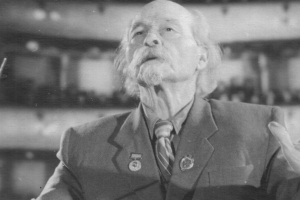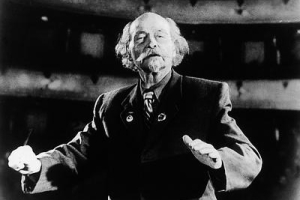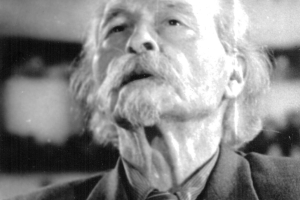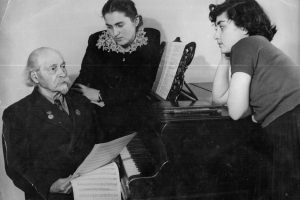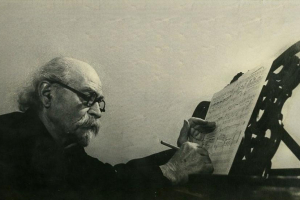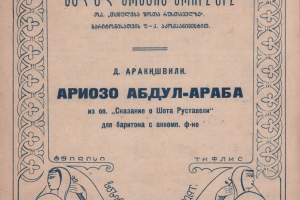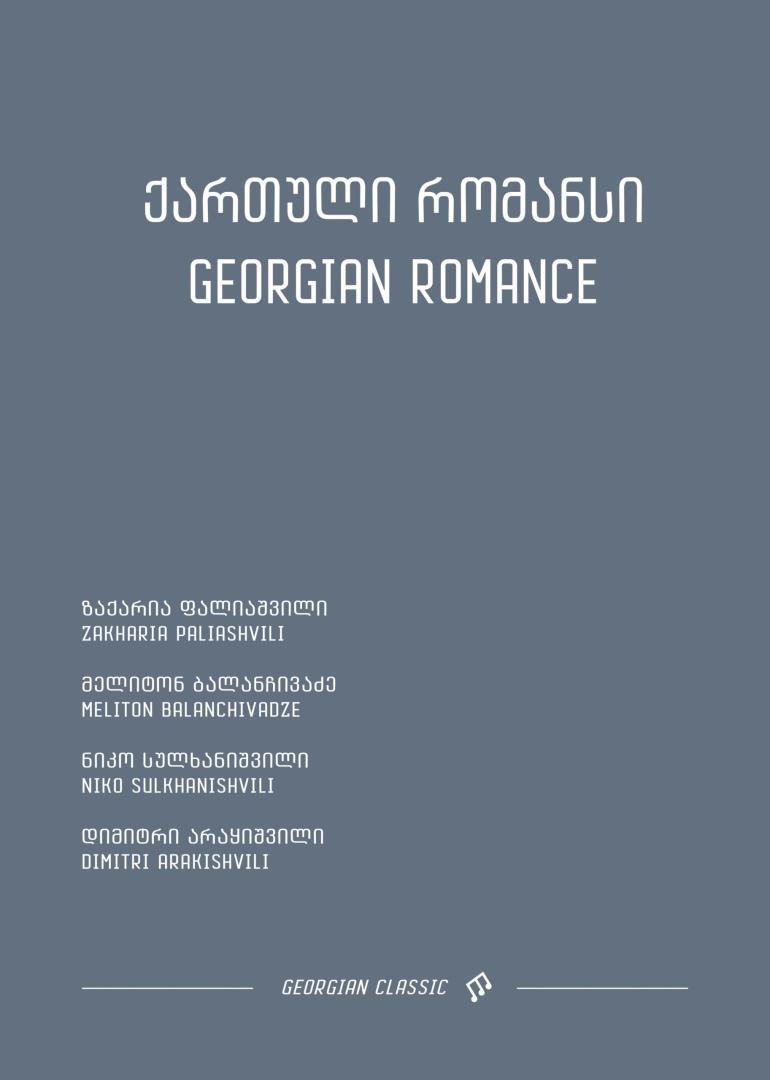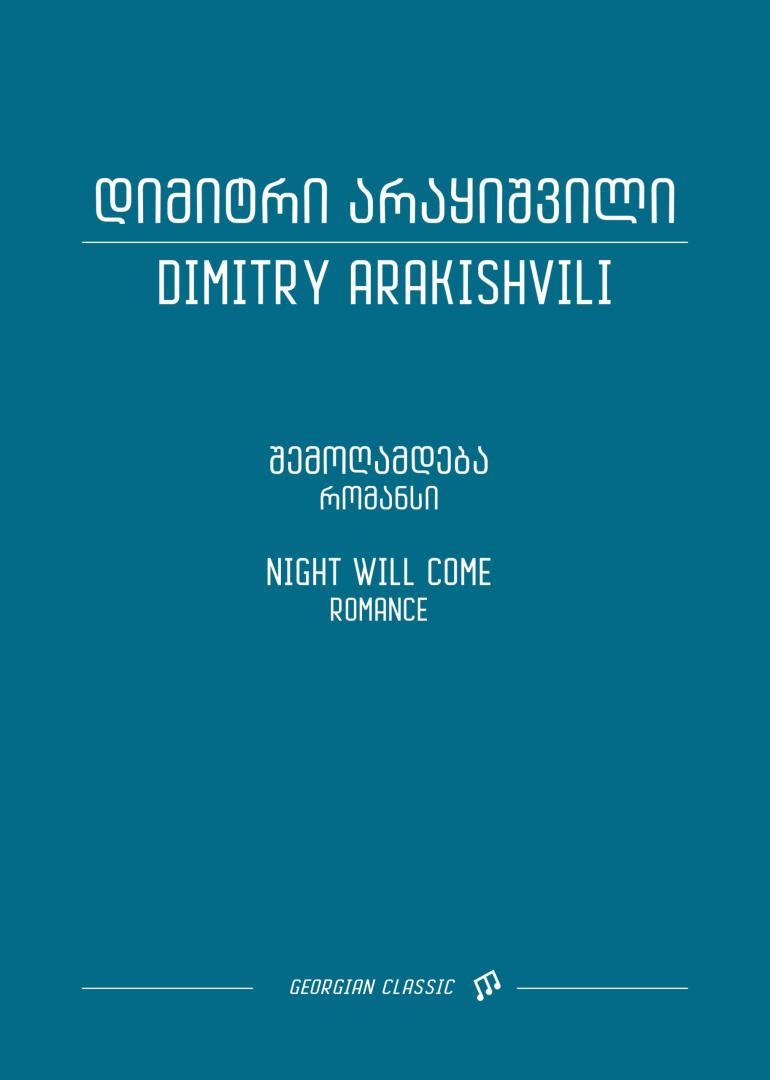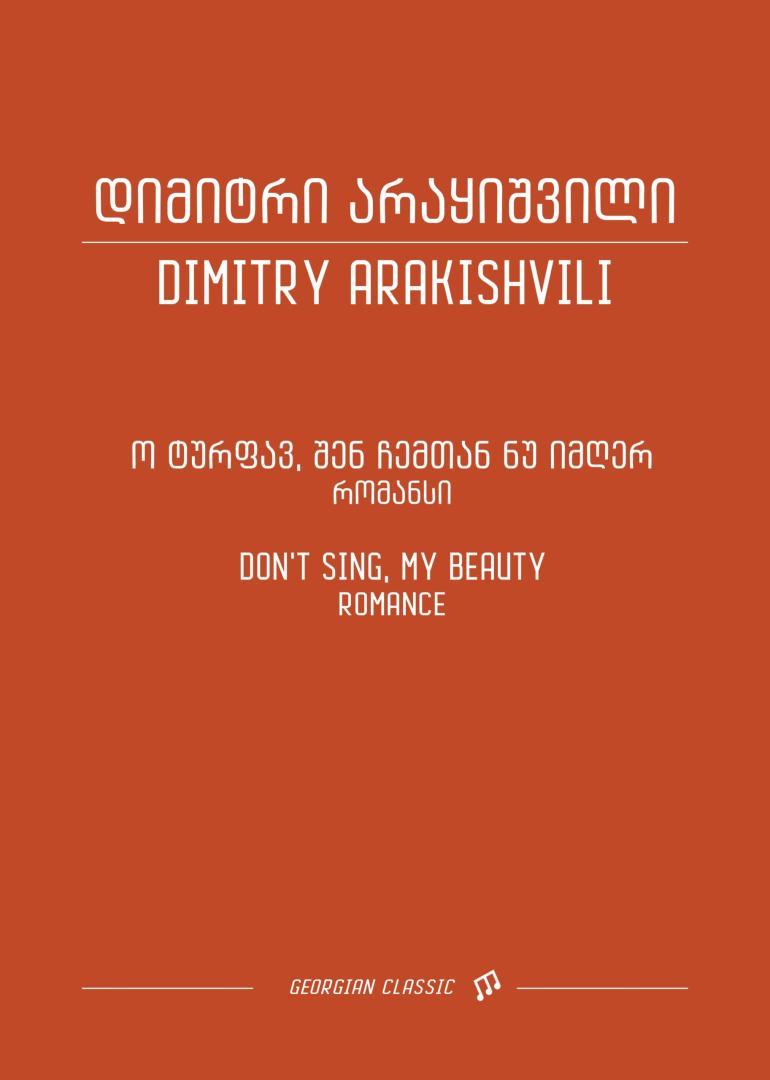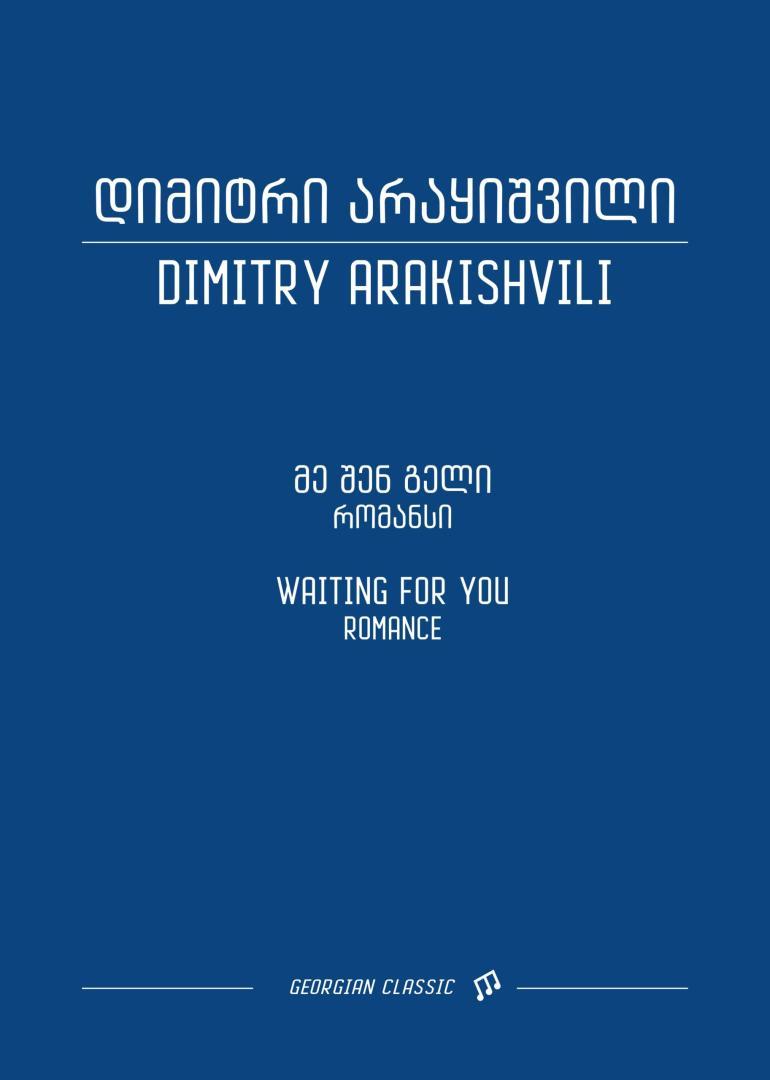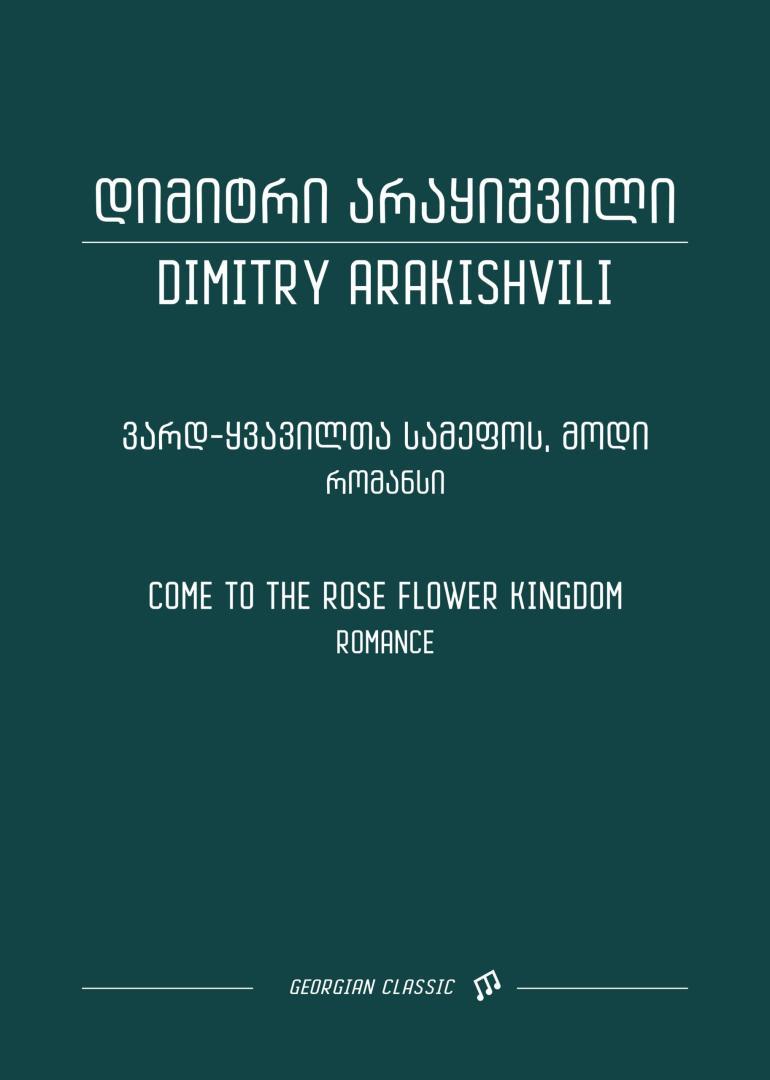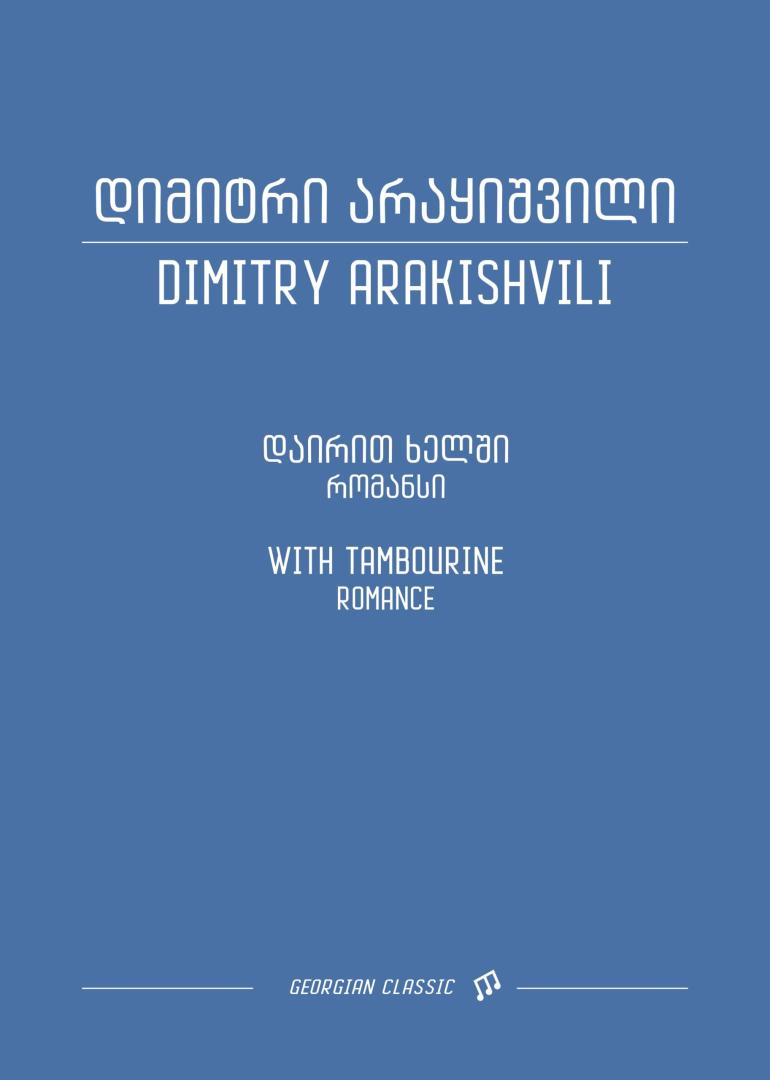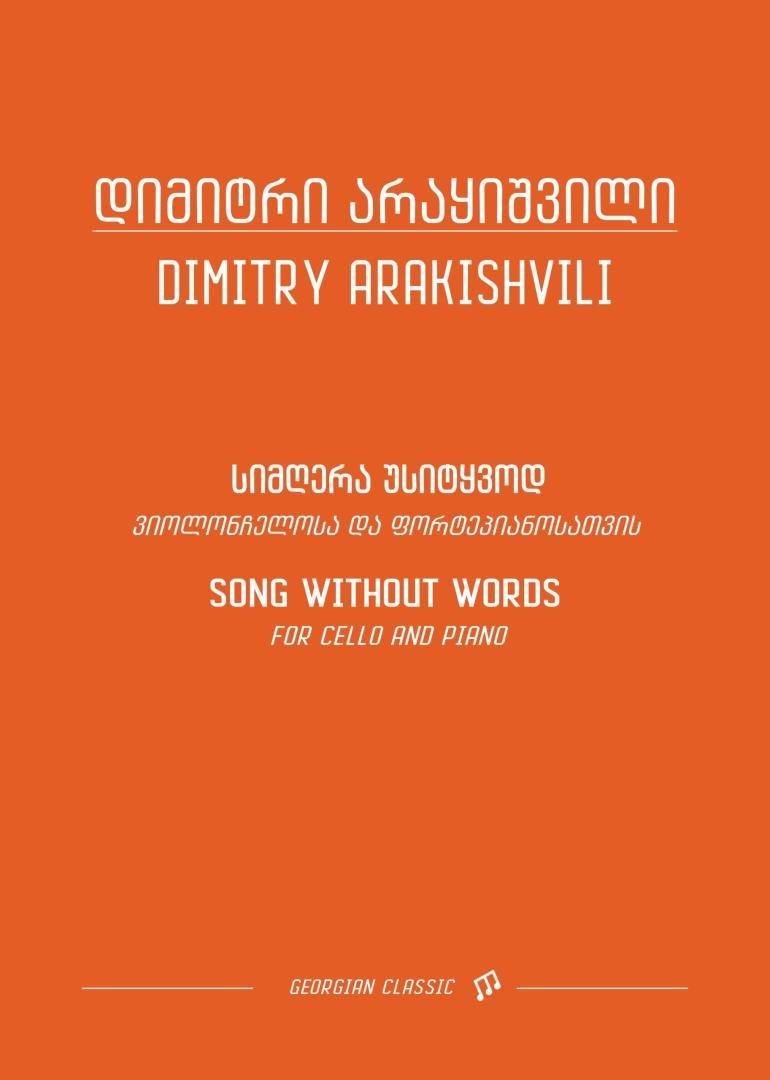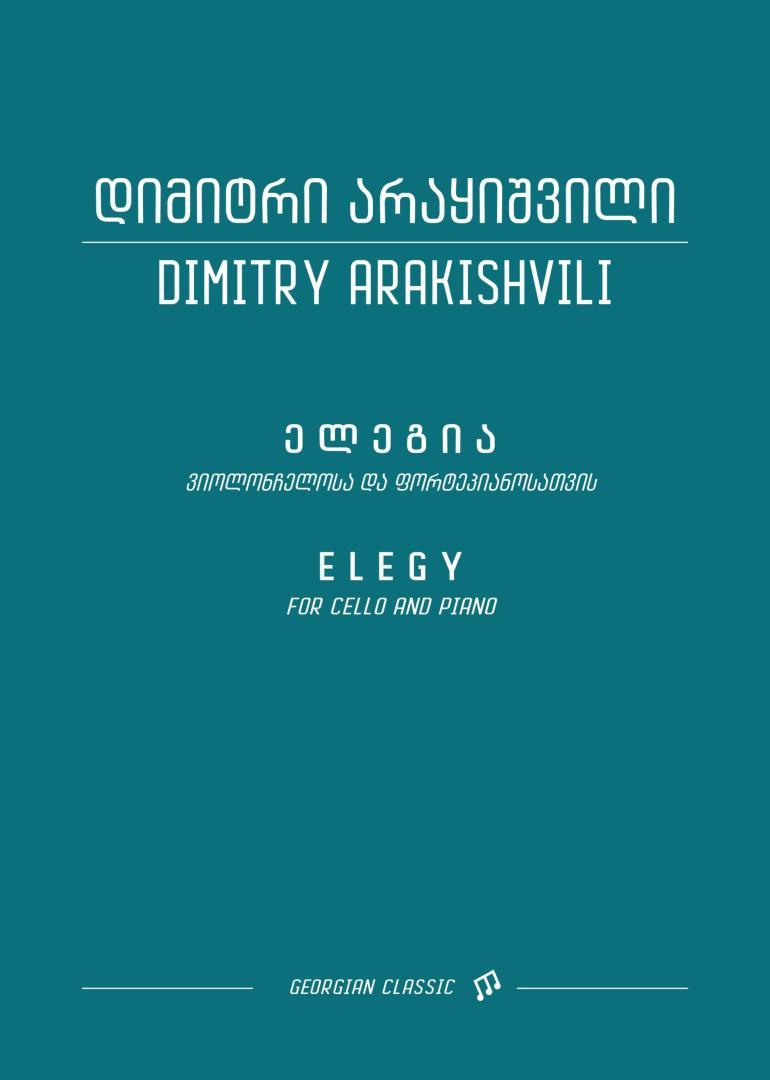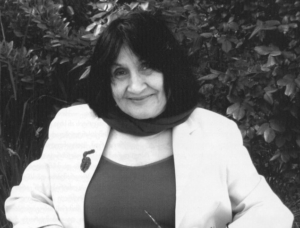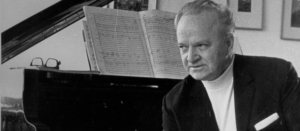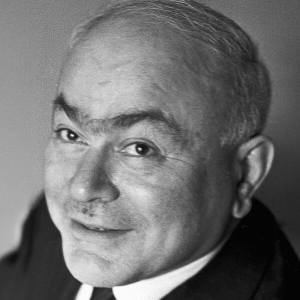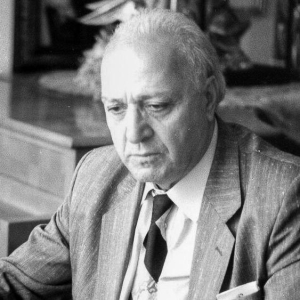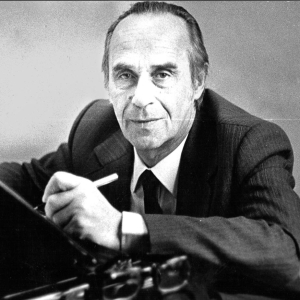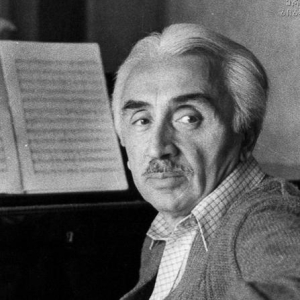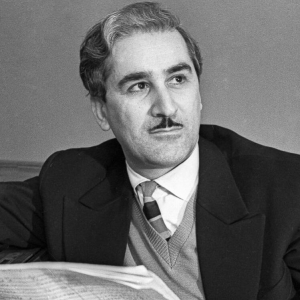Dimitry
Arakishvili
Dimitry Arakishvili
(1873 – 1953)
Dimitry Arakishvili – Georgian composer, musicologist–ethnographer, teacher and public figure. One of the founders of Georgian professional music. People’s Artist of Georgia (1929). Academician of the Georgian Academy of Sciences (1950). Laureate of the State Prize of the USSR (1950).
Date of birth – February 23, 1873
Place of birth – Vladikavkaz, Russian Empire
Date of death – August 13, 1953
He is buried in Didube Pantheon of Writers and Public Figures – Tbilisi
BIOGRAPHICAL DATA
Arakishvili spent his youth in the North Caucasus – in Armavir and Ekaterinodar (now Krasnodar). Arakishvili’s love for music was awakened by L. Agniashvili’s Georgian Choir (conductor I. Ratili), which he heard for the first time in 1890 in Armavir.
1894 – 1918 – studied at the Moscow Philharmonic Society Music and Drama School, which he graduated with three majors – composition (A. Ilinsky’s class), theoretical subjects (S. Kruglikov’s class) and conducting (V. Kesi’s class);
1901 – 1902 – 1904 – 1908 – by directing of the Music–Ethnography Commission at Moscow University. He organized four scientific expeditions to different regions of Georgia and collected more than 500 folk songs, which he later published in three large collections with extensive research and commentary. Arakishvili’s works showed the identity of Georgian folk music to the world;
1906 – Founded the “People’s Conservatory” in Moscow;
1908 – Established free educational courses for poor children in Moscow;
1918 – Graduated from the Moscow Archaeological Institute;
1918 – Returned to Georgia;
1921 – The second conservatory was founded on his initiative;
1921 – At the initiative of Arakishvili, a choral class, a string quartet department and an opera studio were opened in the Second Conservatory of Tbilisi;
1923 – The first rector of the United Conservatory;
AWARDS AND RECOGNITION
1929 – People’s Artist of Georgia
1944 – Doctor of Arts
1950 – Academician of the Georgian Academy of Sciences
1950 – Laureate of the State Prize of the USSR (music for the film “Jurgai’s Shield” – directors S. Dolidze, D. Rondel)
Member of the “Georgian Society of Science, Art and Literature” in Moscow (head A. Sumbatashvili–Yuzhin);
Dimitry Arakishvili
(1873 – 1953)
SELECTED WORKS
DRAMATIC MUSIC
1904, 1914 – 1919 – “Tale about Shota Rustaveli” – Opera in three acts – (Libretto by A. Khakhanashvili, S. Shanshiashvili, and Mchedlishvili).
1921 – 1926 – “Dinara” – also known as “Life is Joy” – Comic Opera – (Libretto V. Gabunia)
1926 – Opera “Nestan” (unfinished)
ORCHESTRAL MUSIC
1911 – “The Hymn to Ormuzd” – Symphonic picture – also known as “Among the Sazandari”.
1919– A New Liturgy – Symphonic picture
1933 – “Hymn to the New East” – Symphonic picture
1937 – Scenes from the opera “Nestani” by Shota Rustaveli, orchestral suite featuring three pieces
1934 – Symphony No. 1 (a moll) – The first Georgian symphony (Five pieces), according to the date of creation.
1942 – Symphony No. 2 (h moll) – for the big Symphonic Orchestra and Chorus (Four pieces)
1951 – Symphony No. 3 – “Homeland and glory” – for the big symphonic orchestra and chorus (Four pieces)
VOCAL INSTRUMENTAL MUSIC
1941 – Cantata marking Georgia’s 20th anniversary of Sovietization
1945 – Cantata in honor of Pushkin
CHAMBER INSTRUMENTAL MUSIC
1901 – Prelude and Fugue for String Quartet
1948 – “Andante” for String Quartet
1904 – “Elegy” for Cello and Piano
1913 – “Song without Words” for Cello and Piano
1901 – “Elegy” for Cello and Piano
1937 – Piano pieces “Davluri”, “Toy” – Seven Caucasian Dance
VOCAL MUSIC
ROMANCES
“On the Mountains of Iveria”, “Fountain of Bakhchisarai”, “Don’t Sing Beauty”, “Spring and Flowers”, “Earring”, “Date”, “Chonguri”, “”Wake up, flap your wings”, “Come to the Rose Flower Kingdom”, “On the Starry Night”, “Waiting for you”, “It’s dark night”, “Night will come”, “Urmuli”, “My Star”, “Orphan Soul”, “I wanted to hide my tears”, “Poetry as an anthem”
SONGS
Folk Songs for Vocals and a Piano, – (edited by D. Arakishvili), including “Orovela”, “The Sun Within and Outside”, “Nana”, “Beautiful Woman”, and “Megruli Arananu…”
FILMOGRAPHY
1924 – “Before the Storm”. – Directed By Kote Marjanishvili.
1944 – “The Shield of Jurgai.” – Directed by Simon (Siko) Dolidze, David Rondeli
Author of the book “Georgian Music”, 1925.
Dimitry Arakishvili
(1873 – 1953)
Dimitry Arakishvili was a new Georgian professional music classicist. Together with Meliton Balanchivadze, Zakaria Paliashvili, Viktor Dolidze, and Niko Sulkhanishvili, he developed the basis for a variety of professional music genres, creating one of the first examples.
Arakishvili’s public and scientific activity is equally important. Despite spending much of his life outside of Georgia, the composer’s main purpose in life and work was to serve Georgian national music, which was manifested principally in the collecting of Georgian folklore samples, their interpreting, and analysis. He therefore set a foundation for Georgian musical folklore. It should be mentioned that Arakishvili was the first person to emphasize this aspect of Georgian folk music’s uniqueness.
The urban, so-called “Tbilisi Folklore,” is one of the sources of Dimitry Arakishvili’s creativity. This phenomenon was produced by the immigration of various nations and their artistic endeavors in Tbilisi, Georgia’s capital. The pioneers of Georgia’s new professional music were taken away by the genre of “Tiflisi folklore” associated with assimilation with Eastern culture. Their interest was particularly drawn to Ashuguri creating art, which was popular at the period. The vocal creations of the first-born of Persian, Turkish, and Armenian culture, – Ashugebi – and folk singers-performers of this genre – Ashughuri – took an important place in Tbilisi’s life. Solo song accompanied by oriental instruments such as saz and tar, as well as vocal-instrumental genres such as Bayātī and Mukhambazi, achieved popularity. Even singers from different districts of Georgia frequently play Georgian songs in Ashugh style, and it was this particular event that gave birth to this branch of “Tiflisi folklore.”
This influence may also be found in Dimitry Arakishvili’s musical language, which is based on the melodic, kilo-harmonic, cadence cycle typical of “Tbilisi folklore.” Arakishvili’s musical background is wide. He wrote one of the first Georgian operas, “The Tale of Shota Rustaveli,” as well as the first Georgian symphonic works, “Hymn to Ormuzd,” also known as “Among Sasanders,” Symphony No. 1 (3 symphonies in total), and “Nestani” from the orchestral suite of the same name. Nonetheless, romance was the composer’s main artistic expression. His early compositional attempts adjust into this category. Most significantly, Arakishvili is a “romantic composer,” according to musicologist Lado Donadze. The “romantic” genesis infuses all of his works, regardless of genre. Today, it should be mentioned that it was Arakishvili who initiated “romantic” belief in Georgian music, which may be considered one of the guiding forces in the long process of formation of new Georgian professional music. DimitryArakishvili has written almost 80 novels. Throughout his long and fruitful life, he wrote works in this genre. His earlier romances demonstrated his stylistic characteristics: tranquility, naturalness, calmness, vocal performance, cantilena style, and transparent harmonic expression.
For romance composing, Arakishvili used authors from many eras, times, and nationalities. Based on the poems of more than 30 poets, his romances are inspired by Georgian poets: Nikoloz Baratashvili, Ilia Chavchavadze, Akaki Tsereteli, Alexander Kazbegi, Giorgi Kuchishvili, Galaktion Tabidze, Sandro Shanshiashvili, Persian poet – Hafiz, Russian poets: Alexander Pushkin, Mikhail Lermontov, Afanasy Fet, a classic of Ossetian literature – Kosta Khetagurov.
In terms of the composer’s approach to the poetic word, he begins with the idea of the poem, the atmosphere, from which he creates a particular musical sketch. As a result, his attitude toward poetry depends on the idea of generalization.
Dimitry Arakishvili established as a composer-lyricist whose nature was grief, desire, longing for the essence of nature, romantic sensations… it is logical that romance-elegy became his most comparable and favorite genre. Affection theme played the leading role in his romances, which are presented in a wide range: serene beginning dominates in the romances “Rise Up, Spread Your Wings”, an exciting, passionate feeling in the romance “Me Shen Geli” (Waiting for you) (on the text of M. Davidova), pastoral-pantheistic beginning in the romances “On the Mountains of Iveria”, “Starry Night” (on the text of A. Fet), sad anticipation in the romance “Come to the rose-flower kingdom” – on the text of Hafiz). In a romance inspired by the poem “On the Iverian Mountains” by the great Russian poet Alexander Pushkin, love sentiments and visions of midnight nature combine.
The oriental coloration of the mentioned “Tbilisi folklore” is especially strong in Arakishvili’s romances based on the poetry of the 14th century Persian poet Hafiz: “Arise, Sheinawarde..”, “Siov, Nazo”, “Come to the Rose-Flower Kingdom”. These romances are characterized by Eastern folklore aspects such as heavy melismatics, harmonic minor tonality, and expanded 2nd interval.
In general, the oriental culture characteristic of “Tbilisi folklore” shows organically in Arakishvili’s novels, both in the harmonic sound and in the melodic, kilo-in harmonic, cadence usage. The pieces have a homophonic appear. The majority of the romances are written in two or three parts, with little contrast between them. Only tone sometimes separates the middle and end parts. It should be emphasized that the piano part in Arakishvili’s romances is not just for accompaniment. In the romance “Siov Nazo,” for example, the piano delivers the general atmosphere, the image of nature, and the sound of the wind. The tune played in the piano part at the beginning of the romance “O beauty, don’t you sing with me” (based on A. Pushkin’s text) illustrates the hero’s sad mood. The piano represents the outpouring of emotions again in the middle part.
Arakishvili’s civic values, coming from his musical background, may be shown most clearly in his romances. It is no surprise that his first romance is “Tkemmoiskha Potholi,” which is based on Ilia Chavchavadze’s poetry “Spring,” that conveys the spirit of the nation.
Later, the composer, who had already arrived in Georgia, showed his profound feelings about his native country’s fate in his romances. Giorgi Kuchishvili, the composer’s fellow poet, turned out to be his colleague. Romances were written based on Kuchishvili’s texts: “The Night Is Dark”, “Shemogomeba”, and “Urmuli”.
These compositions are connected by a singing recitative-declamatory melody as well as a rhythmic-harmonic arrangement, in addition to the theme. These works, along with “Starry Night”, “Me Shen Geli”, “On the Mountains of Iveria”, and “Come to the Rose-Flower Kingdom”, are among the most popular Georgian romances.
Generations of Georgian singers were raised on Dimitry Arakishvili’s romances, on the classical samples of this genre, which remain repertoire compositions of vocal arts performances to the present day.
Musicologist
Tamar Tsulukidze
English Language Translator
Tamar Kharadze



